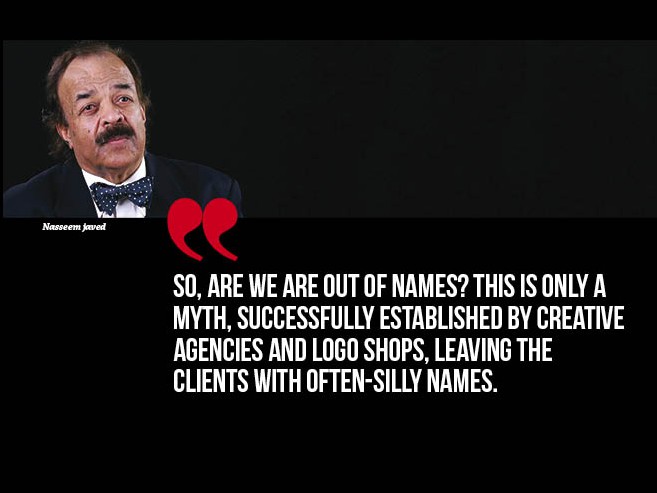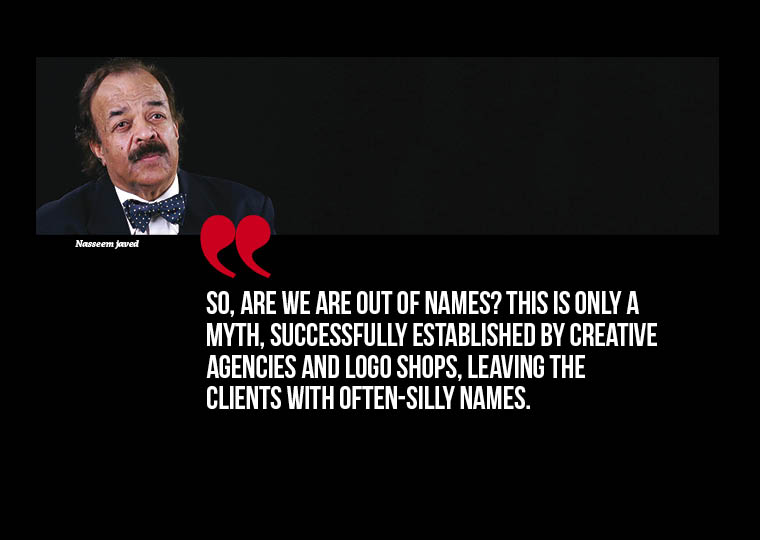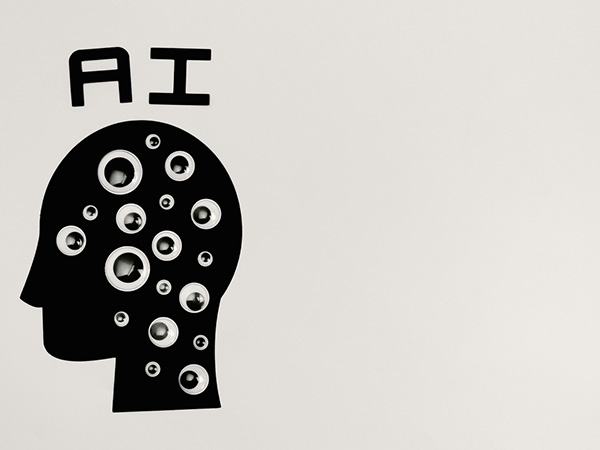Industry Talk
Google Plays Forbidden Name Games
by Naseem Javed
September 3, 2015

There is nothing wrong with a name ALPHABET but the name game itself?
This name is harmless and in public domain, so anybody can use it in any way or shape:
Alphabet Catalogue, Alphabet Listings, Alphabet Ding Dongs...
So, it’s not owned by them, but they always had an iron clad ownership on the global name identity of ‘GOOGLE’ while ALPHABET is commonly shared by thousands of other businesses in various contexts all over the world. What level of confusion will cause in an arena where as an example APPLE is used very successfully?
Sometimes organisations despite global powers still do not own their own name brand identity. For example, mega identities, like, United, National, Dynamic or Quantum, there are already hundreds of thousands of such names in use for each such brands; United Airlines, United Bank, United Bakeries. The key questions why United Airlines is not as distinct and proprietary name like Alitalia. These are very serious and politically sensitive boardroom issues and you have to first count the direct beneficiaries of such naming disfunctionalities.
Good thing ‘GOOGLE’ teams also decided not to be called by some crazy naming exercise, in a Silicon Valley style ‘Confusoonostor’ or ‘Godataumisote’. Otherwise there will be full page ads running around the world on how such super creative names convey the meaning from ancient scripts as ‘humble pit, soft yet very powerful’ or ‘crazy dragon fighter tackling big data’. It’s a fact; such types of exotic names very often appear with big bang but quietly fade away when mega budgets convincing the confused customers of the naming stupidity runs out.
Here, Google by selecting a simple word did very well,
ALPHABET is only a TWO STAR ranking while GOOGLE is FIVE STARS, how?
2 STAR RANKING:
“The name-identity is seriously damaged; all the efforts are uphill battle. Sales are difficult, recognition is never achieved and limitations are constantly hurting the name identity.”
5 STAR RANKING:
“The brand name holds a winning combination, and is fully capable of traveling around the world without hassle, and consequently owns a bright future. Such Five Star name identities cost very little in promotion as they attract customers based on their shine and personality, therefore promoting themselves with unparalleled personality and dynamic appeal. All super successful brands around the globe have attained Five Star Status.”
Is your brand name identity worthy to be exclusively owned by you or is it already being shared by hundreds of others?
ALPHABET’s Dotcom Fiasco
Now, now, the www.alphabet.com currently is belonging to others and not to Google, but will eventually be purchased when the ‘merde’ hits the fan and the non-disclosed price tag of $10-100 million dollars will become a small side expense.
Currently GOOGLE’s entire ‘ALPHABET’ empire is housed and parked under “abc.xyz”; that’s a new Top Level Domain Name posing a rather more complex and much advance nomenclature game. Unless GOOGLE buys ‘ALPHABET’ at any cost, the selection of the name can easily be construed as a naming disaster.
Especially such simple names with matching dotcoms are dime a dozen.
Google will simply buy this to save face and their creative will enjoy double sided victory.
During the first 24 hours some thousands of ‘abc’ and ‘xyz’ based new domain names got registered by public at large.
Why Corporate Images Die a Slow Death?
A short history of naming of the recent past.
PWC Consulting did a self-destructive branding number to become “MONDAY”. A dumbest name of the period. During this 60 million dollars makeover and while still in a shock gets picked up by IBM for a merely 3.5 billion. The name MONDAY is dropped immediately. Only a year ago, PWC did reject a 12 Billion dollars offer by Hewlett Packard.
Deloitte, spends 40 millions to become Braxton, a name they picked up from the past so that the future can be their judge. KPMG also kicks in 40 million to be re-named to BearingPoint. Their challenge is now to unite 16,000 bright consultants under this difficult term on the global scene before they reach their breaking point. When two complicated ideas like 'bearing' and 'point' are combined they will only become initialised as BP, because it’s only the fickle and lazy public at large which decides what to think of a name and what to call it and no amount of money will ever change their mind... In the meanwhile, the real BP, which is British Petroleum, is trying very hard to shed the ‘British only’ image by re-inventing as BP as in "Beyond Petroleum" one of their short-lived campaigns. We are not amused. BearingPoint’s symbol is not BP rather it’s BE. Pity. Lastly, Anderson, before their demise also spent 160 million on Accenture, a name suggested by their employee. So be nice to your employees who knows one day they may end up naming your corporate destiny.
This fancy colourful makeover of the world’s top four consulting companies, plus a 300 million budget for four new names, has certainly guaranteed them a chapter in the branding history. While the ad agencies collect their design awards the armies of consultants get ready to fight for their corporate identity.
The new laws of corporate image clearly points to the failure of the traditional corporate identity practice, whereby, logo, design and specific colour schemes were everything and the name, only one of the components... today, under the new laws, names are everything while the other paraphernalia is certainly lost in the crowd. A name is what a corporation needs, to talk about, remember, type, chat, refer, call, praise or curse. While the logos, designs and colours you forget and do not call for, in these cyber driven economies they have lost their value...Today everyone is forced to TYPE...better remember the name and better remember the spelling...better like it or click on to the next one. Welcome to the global e-commerce.
One hour on the net and you go through enough logos, artworks and design which is equal to the entire work by all the logo shops in the whole world created during the last century... as business gets more complex, search ability of a name becomes ever so critical on the global e-commerce... under the new laws of corporate image, it's all in the name stupid.
Here are seven steps to measure the life of a Corporate Image in this new global age
- One: Name is lost in the crowd for being similar or identical to thousands of others. Names borrowed from a dictionary, part of an everyday lingo, never achieve distinction and despite extraordinary expenses it will simply die out of exhaustion.
- Two: Name is too old fashioned to convey today’s dynamics.
- Three: When the spelling of a name requires a higher IQ. Weird spellings are used to avoid trademark problems or to fit the creativity of a spinning logo. This only ensures obscurity. Spell four different ways, and it will only bring 25% of the hits or profits.
- Four: More money is spent in explaining the origin of the name. Why advertise to educate the universe of these name disfunctionalities. Customers only care about their perceptions they don’t care about your cute story.
- Five: Corporation does not own a trademark or an identical domain name. Why bother?
- Six: Name is embarrassing in certain countries.
- Seven: Name is too long, too difficult, too confusing, too complicated or simply, too boring. Using lower cases, dashes or slashes and other dingbat characters in a name, will only ensure its self- destruction.
So, are we are out of names? This is only a myth, successfully established by creative agencies and logo shops, leaving the clients with often-silly names. Naming is a serious black and white exercise and should not be confused with colour design, logos campaigns, because today these components have a very limited value. Naming is naming, demanding global experience in corporate nomenclature.
---------------
Test your own Five Star Ranking of your own brands
The Five Star Standard of Naming
A star is awarded for each YES answer:
* First Star: Is your name easy and simple?
* Second Star: Is your name one- of-a-kind?
* Third Star: Is your name highly related to your business activity?
* Fourth Star: Is your name globally protectable?
* Fifth Star: Is your name with a matching and identical dotcom?
 Naseem Javed is a corporate philosopher and founder of the Image Supremacy Movement. He is a world recognized authority on global digital trends, image complexities how they impact business performances and create global age skill shifts. He is founder of ABC Namebank, a world-class speaker, syndicated columnist and author of several books. His recent work on entrepreneurial leadership and innovative performance Mentorian Worldwide is getting global attention.
Naseem Javed is a corporate philosopher and founder of the Image Supremacy Movement. He is a world recognized authority on global digital trends, image complexities how they impact business performances and create global age skill shifts. He is founder of ABC Namebank, a world-class speaker, syndicated columnist and author of several books. His recent work on entrepreneurial leadership and innovative performance Mentorian Worldwide is getting global attention.
LinkedIn: Naseem Javed







.jpg)





